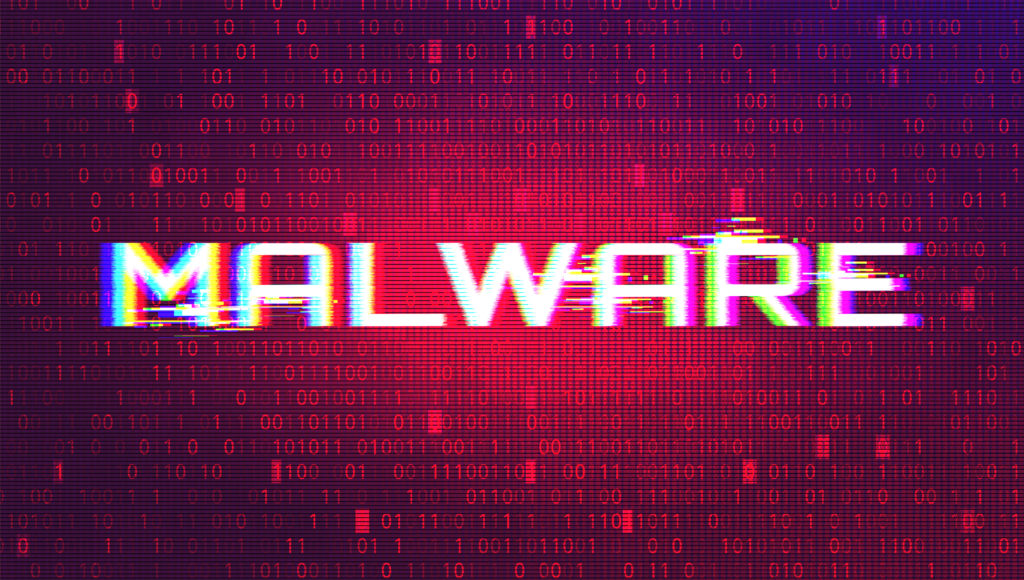
Users often seek out virus removal after a virus has been wreaking havoc on their system for far too long. Most of the malware used today is designed to spread quickly to other devices on the same network, so time is of the essence when detecting a potential infection.
The faster a malware infection can be identified and addressed, the less impact it will have on an entire company or home network. One of the first things to do if you suspect malware on a device is to disconnect that device from any wireless or wired networks.
In 2020, 61% of organizations were hit with malware that spread quickly from one employee device to another.
Users often shrug off signs of malware as “glitches” in a system or software instead of recognizing them for what they are and getting a device checked out. Here are some of the red flags to look for that indicate a device has been infected with malware.
Computer Slows Down Considerably
Computers normally get slower over time, but this is generally incremental and doesn’t happen suddenly. If you notice your computer has suddenly slowed down considerably, this is a sign that you have a malware infection.
Malware often will take up system resources, and some forms will even use your computer as a “drone” in automated distributed denial of service (DDoS) attacks. When malware is running it can cause your system to freeze up when you try to do other things.
Missing or Corrupted Files
Have you ever opened a file and had the program say it was corrupted and couldn’t be opened? What about trying to find a file or folder that you knew should be there, but it wasn’t?
These are both signs that you may have a ransomware or other malware infection. Malicious scripts can encrypt or otherwise damage files so they’re unusable. They may even delete files and folders.
Missing or corrupted files aren’t something to just shrug off. If it happens, you should have your PC checked right away for a virus.
Unexpected Reboots
Computers should not reboot without being prompted. If this begins happening, it’s a sign that something significant is wrong. In many cases, it can be a virus infection.
Viruses and other types of malware can infect certain system files needed to run your operating system, in which case, your computer may reboot to try to resolve an issue.
Malware can also force a reboot to finish installing itself.
Storage Is Full When It Shouldn’t Be
When dealing with a replicating worm or similar type of PC infection, the malware can be eating up your storage space with its own code.
Most users don’t check their hard drive storage space regularly and only notice their drive is full when programs they’re using stop working as they should.
If your hard drive space is mysteriously depleted, you should get a professional virus scan and diagnosis to determine the cause.
New Popup Messages for Antivirus or Other Software
Some forms of malware are trojans. This means they pretend to be something a user is likely to trust to get that user to click on something and initiate an installation of a more dangerous type of malware.
This type of infection usually shows up as a popup for antivirus software that you don’t even have installed. It will try to entice you to click a link to either “update your subscription” or see some threat that it claims to have found.
If you’re seeing new messages like this, first, check your installed programs to see if you even have this type of software. Then have your PC checked to ensure it’s not infected.
Getting the Wrong Browser Home Page
A common sign of adware is to open your browser and land on the wrong home page. This type of infection will change the system settings for your default home page and direct you to an ad-filled page.
You’ll usually be hit with multiple popups and ads that lead to more malware. You may even see malicious ads popping up when you’re on other web pages. This can be both incredibly annoying and can lead to further malware infections.
Light on Your Video Camera Goes on Unexpectedly
Most computers and laptops now have video cameras built-in. These cameras can be used to spy on you without your knowledge. Hackers will do this in an attempt to capture something embarrassing and then use that to extort money from the victim.
If you see the indicator light on your video camera go on when you’re not actively using it, this is something you should get checked out right away as it could mean a malware infection.
Get a Professional Virus Scan & Removal
Many free antivirus programs you find online won’t be adequate protection. Carl’s Computer Care can help your Louisiana company ensure all devices are properly scanned, cleaned, and protected from malware in the future.
Contact us today to schedule a consultation! Call 225-315-3498 or reach us online.
